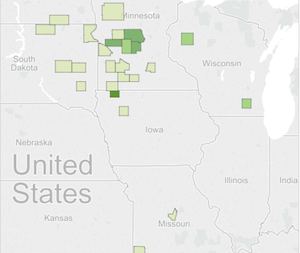The unemployment rate fell 0.4 percentage points to 9.4 percent in December 2010, according to the U.S. Bureau of Labor Statistics.
With nearly 10 percent of the population in need of work, applicants will need to stand out in order to be noticed. There are still an estimated five job seekers for each available position.
One way to get a recruiter to take notice is to give a killer interview.
Several Chattanooga-area human-resources managers shared tips on how to impress a potential boss.
1. Know the job, and know the company. "If I've got a position open for a nuclear engineer," said Laura Paddock, talent acquisition manager at TVA, "do they understand that I'm a utility. Do they understand what TVA does? We're always surprised to hear people say, 'I don't really know a lot about you, other than that you make electricity.' "
2. Be willing to do what it takes. Brad Pope, vice president of human resources at Memorial Health Care System, said knowing that a candidate has the willingness to do the job for which he or she is interviewing is the No. 1 thing he looks for during a meeting. "Do they have the willingness even if the CEO comes in and says: 'Today you'll be managing a project, and tomorrow you'll be sweeping the floor?' "
3. Be on time. Or early. And if you're kept waiting, be gracious about it. "We've had candidates who have complained," said Kathy Reid-Papson, talent acquisition manager at BlueCross Blue Shield of Tennessee.
4. Be honest about your experience. "Don't lie, either on your resume or during the interview," Paddock said. "Don't oversell yourself." Speak accurately to the roles you had in previous jobs.
5. Turn off the mobile phone, or better yet, leave it in the car. You want to focus on the interview, not on what is ringing or vibrating in your pocket.
6. Address the interviewer by the correct name. "It seems like many candidates don't go to the trouble, when setting up an interview, of listening to hear with whom they'll be speaking," said Reid-Papson. "Maybe it's one person, maybe it's three, but they need to know who they are and what their titles are, so ask that when the interview is being set up."
7. Look and act the part. Be professional in dress and demeanor. "Can they articulate?" said Paddock. "Do they give professional responses, regardless of the position?"
"If they come in and put their feet up on the desk," said Pope, "that's not presenting well."
8. Don't talk to the interviewer about your personal issues. "If a person's looking for a job, obviously they need and want to work," said Reid-Papson. "But if they start getting into too many details about not liking their former boss or their husband doesn't want them to go to work, anything that's personal can become a turnoff pretty fast."
9. Don't ask about money out of the gate. "That's a bit of a red flag," said Paddock, "because it sends the message that the person is only interested in the salary and not in the bigger picture."
"Employers are not looking for someone who is just looking for a job," added Pope.
10. Be specific. Employers are interested in hearing examples of your successes and failures. Rather than just saying, "Yes, I have leadership skills," tell the recruiter about a project you led and what you learned.
11. Ask questions. "Believe it or not, people will show up and they won't have any questions," said Reid-Papson. "Obviously you can have some prepared, and then you'll also need to think on your feet and come up with some as the interview proceeds."
12. Be persistent, but don't hound the recruiter. Experts say the preference is to send a thank-you note after the interview, then follow up a week later. But don't cross the line between assertive and aggressive. "If you don't hear anything after two attempts," said Paddock, "give it up."
Contact Holly Leber at hleber@timesfreepress.com or 423-757-6391.
Follow Holly Leber on Twitter by following this link.

